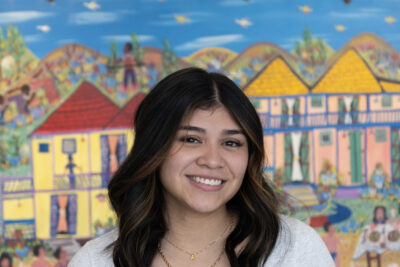After listening to conversations during the last few weeks, I feel like there’s something missing in the National Anthem discussion. I agree with those on campus who feel that we should abstain from playing the Anthem, but I have yet to hear many compelling reasons as to why we should not play it. The traditions of Goshen’s past are valuable, yet citing them as a reason to continue this practice doesn’t seem to be enough for me. Some have explained that Goshen students can be “good citizens” in other ways, yet I still feel that more vivid evidence is needed to continue our tradition. To help students more fully understand this debate, I’ll address these topics and explain why I believe we shouldn’t play the Anthem.
I see Goshen’s custom of abstaining from the national anthem as an affirmation of the Anabaptist faith tradition rather than a denunciation of the United States. Our school’s past omission of the Anthem is not an expression of national loathing. Rather, it’s an active expression of our core values and beliefs. By not participating, our school is stating the differences it has with our government’s actions. While I am thankful for many of the freedoms and opportunities I’m afforded in the United States, I’m also ashamed of how these have so often been given to me. My refusal to sing the national anthem expresses this disconnect between the values I hold and those of our national government.I also disagree with singing our Anthem because the song supports a nationalistic culture which too often clouds our religious and ethical perspectives. Patriotism, or nationalism, is far from inherently wrong. Being proud of one’s community, family and even one’s country bears no risks whatsoever. However, when we become too deeply immersed in nationalistic ideas, our decision-making and ultimately our faith can suffer. Just as consumerism or political polarization can warp our sense of reality, complete devotion to one’s country can be dubious. By playing the National Anthem, it seems that Goshen would be taking a small, but symbolic step towards a nationalistic ideology that I cannot support.
If we do give up this National Anthem tradition, Goshen will lose a crucial part of its theology and instead be conceding to the most powerful social forces around us. I truly see this as a concession rather than a step forward, because it seems like we are settling rather than progressing as an institution which accurately represents our faith as Anabaptists. If the school’s response to this assertion is that we’re being more inclusive, then I would have to question what this means for the entire theology of our institution. If we agree to support a nationalistic song which promotes and honors violence in our nation’s past, what else will we be willing to support in the years to come?
While I don’t agree that we should play the Anthem, I recognize the importance of respect and hospitality when it comes to this issue. I think that we should recognize the legitimacy of our peer’s perspectives, and at the same time recognize how outsiders may view this practice. While I acknowledge that not playing the Anthem may offend visitors to Goshen, I challenge everyone to understand what this outside response may mean. If our Anabaptist traditions and beliefs are not misunderstood, yet they are still viewed negatively, we should certainly not change our traditions. In recent discussions, disagreement has seemingly become synonymous with disrespect or at best, with an unwelcoming atmosphere. Are respectful and welcoming communities really based on similarity and agreement? I would suggest that a welcoming community is not based on similarities, but rather a loving recognition of our individual differences.
As we continue this important discussion, we need to be respectful yet unreserved about our attitudes towards this tradition. If our arguments are clearly and honestly presented, we will be able to make a decision which honors both our Anabaptist tradition and the attitudes of all students on campus.
Jake Geyer is a junior.



